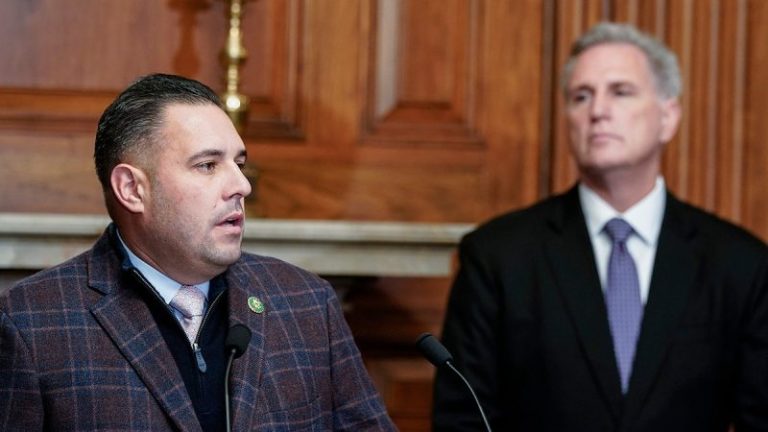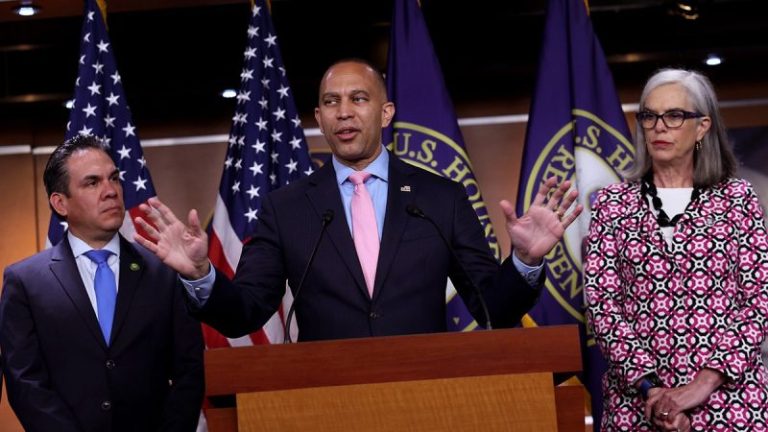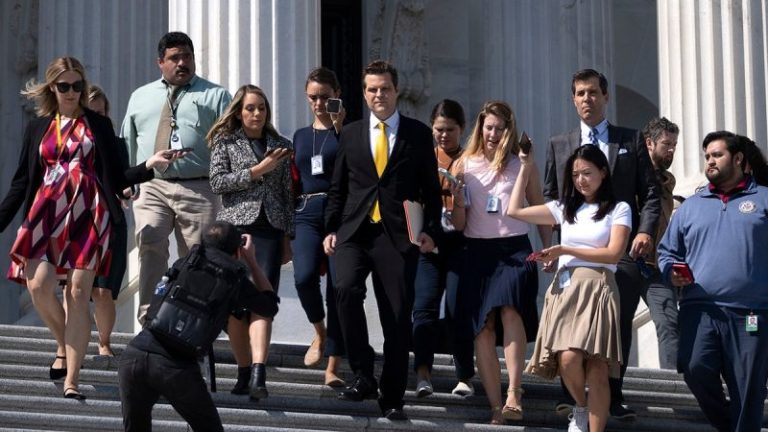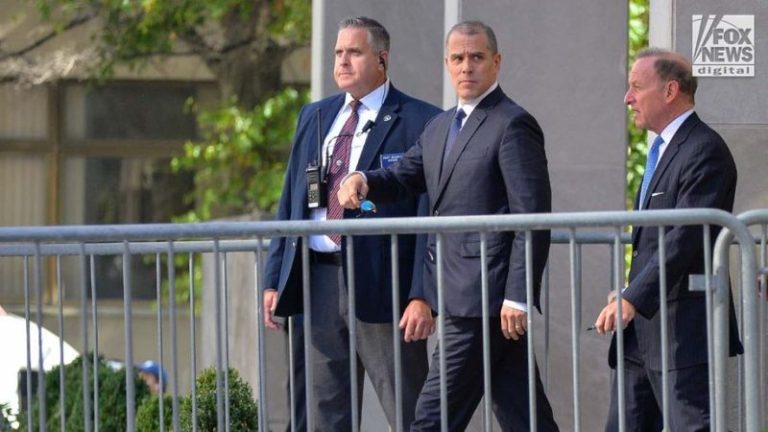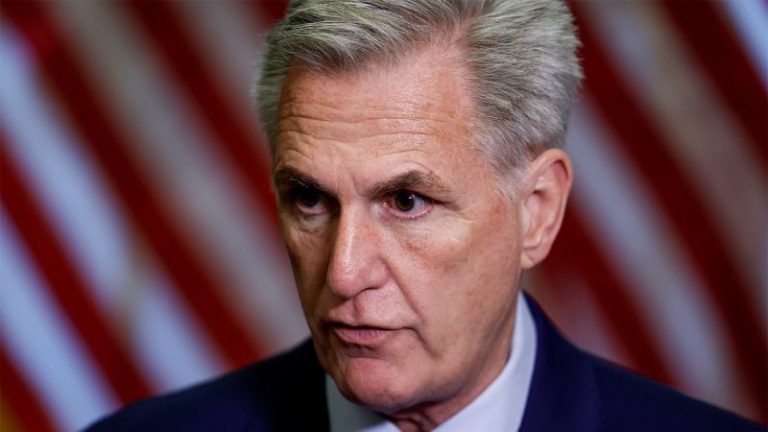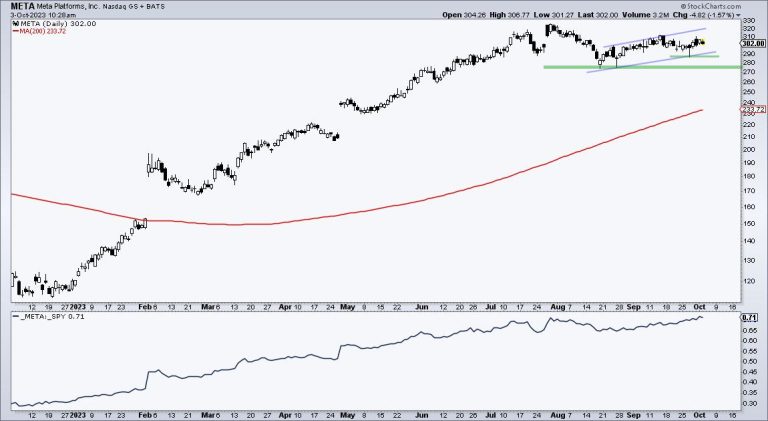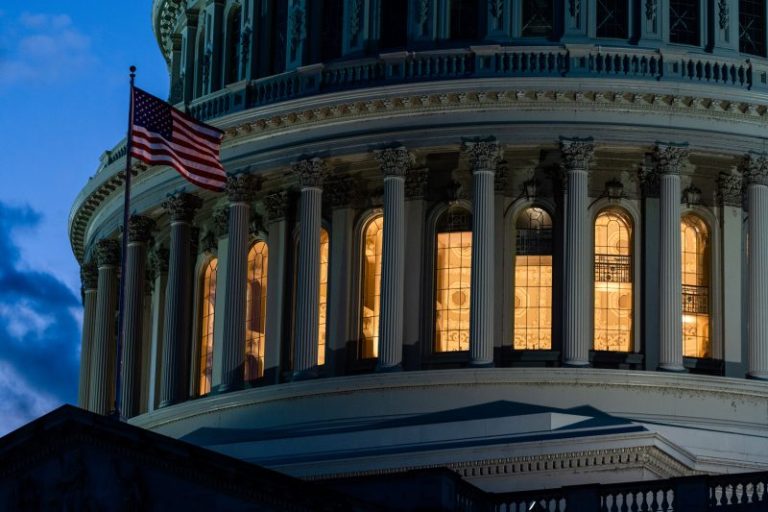The National Security Agency (NSA) will launch a new artificial intelligence security center to both protect U.S. AI systems and defend against external threats.
The new security center launches as the U.S. government has increased its use of algorithms and AI systems in defense and intelligence and is seeking to safeguard systems from theft or sabotage. The NSA center will also be responsible for protecting the homeland from external AI-related threats, according to a report from Yahoo News on Monday,
Army Gen. Paul Nakasone, NSA director, told the Associated Press that the new center could be incorporated into the NSA’s existing Cybersecurity Collaboration Center, which works with the private sector and internal partners to strengthen U.S. defenses from near-peer rivals such as China and Russia.
Christopher Alexander, the chief analytics officer of Pioneer Development Group, told Fox News Digital such a center is ‘desperately needed for intelligence analysis and is crucial for national security.’
‘The most obscure details can complete an intelligence estimate and that requires intelligence analysts who can comb through every piece of information, recognize a [pattern] and turn that data into information – and ultimately a finished analysis,’ Alexander said. ‘AI and machine learning can take on the role of literally 1000s of lower-level analysts. It works 24 hours a day, 7 days a week and the sheer amount of data collected allows for whole new methods of analysis.’
Alexander pointed to allied intelligence collection efforts during World War II, ‘Part of the reason the intel community realized the Germans would attack at the Battle of Bulge was because of the size of buttons coming from German factories. AI will find and alert human analysts to small details that may otherwise be missed.’
Alexander said that ‘In the future predictive analytics will also be improved by collecting and sifting through massive data sets as well. That could completely revolutionize the spycraft trade.’
The report comes after a top CIA official warned that China’s use of AI programs could be a threat to national security.
‘They are growing every which way,’ Lakshmi Raman, the CIA’s director for artificial intelligence, said at the Politico AI & Tech Summit, according to a report on Fox Business.
Those concerns seemingly mirror those of the Department of Homeland Security, which released a threat assessment that said ‘the proliferation of accessible artificial intelligence tools likely will bolster our adversaries’ tactics.’
‘Nation-states seeking to undermine trust in our government institutions, social cohesion, and democratic processes are using AI to create more believable mis-, dis-, and malinformation campaigns, while cyber actors use AI to develop new tools and accesses that allow them to compromise more victims and enable larger-scale, faster, efficient, and more evasive cyber attacks,’ the assessment said.
But Jon Schweppe, the policy director of American Principles Project, is wary of the use of AI by the NSA, pointing to the controversial spying scandal that was made public by whistleblower Edward Snowden just over a decade ago.
‘Nobody is clamoring for more data mining and invasion of privacy from three letter agencies. The NSA has already demonstrated a history of abusing their power with the data collection operation previously uncovered by a whistleblower,’ Schweppe told Fox News Digital. ‘We don’t even know the full scale of the dangers we’re facing with this emerging technology — should we really be entrusting a corrupt bureaucratic agency with even more power? Congress should be looking to limit the scope of these domestic spying operations, not giving them a de facto green light.’
‘We maintain an advantage in AI in the United States today. That AI advantage should not be taken for granted,’ Nakasone told reporters.
But an NSA spokesperson told Fox News Digital in a statement that the new security center is simply ‘consolidating its various AI security related activities into a new entity, the NSA AI Security Center (AISC). Since AI security is principally a cybersecurity responsibility, the AISC will be located within and part of NSA’s Cybersecurity Collaboration Center.’
The new center comes amid increased fears that China or Russia could look to use AI to interfere in the U.S. presidential election next year, though that threat is something Nakasone said the NSA hasn’t seen yet.
Instead, AI will still mostly be used for threat detection analysis, something Nakasone stressed the U.S. has already been doing.
‘AI helps us, but our decisions are made by humans. And that’s an important distinction,’ Nakasone said. ‘We do see assistance from artificial intelligence. But at the end of the day, decisions will be made by humans and humans in the loop.’
But the new security center comes after an NSA study found that securing AI models would be a major national security challenge going forward, noting that generative AI technologies continue to emerge that can be harnessed for both good and evil.
Nakasone said the center will become the’NSA’s focal point for leveraging foreign intelligence insights, contributing to the development of best practices guidelines, principles, evaluation, methodology and risk frameworks,’ adding that both protecting the nation from AI threats and protecting the country’s own AI will fall within ‘our national security systems and our defense industrial base.’
Ziven Havens, policy director at the Bull Moose Project, told Fox News Digital that the new center ‘has the potential to bolster America’s national security,’ pointing to the threats posed by adversaries such as China.
‘With China continuously improving and building out their AI capabilities, we have no choice but to lead the way in the development and implementation of this emerging technology,’ Havens said. ‘America must be first, or else we will be left behind in the AI race.’
Meanwhile, an NSA spokesperson told Fox News Digital in a statement that the agency ‘is uniquely well positioned to bring its technical expertise, threat insights, and authorities as National Manager for National Security Systems and its work with the Defense Industrial Base to support whole-of-government efforts in conjunction with the private sector to ensure an enduring U.S. advantage in AI.’
‘NSA’s principles and values, along with our culture of compliance and protection of privacy and civil liberties, will serve as the foundation for the AISC’s activities,’ the spokesperson added.
<!–>
This post appeared first on FOX NEWS
–>

